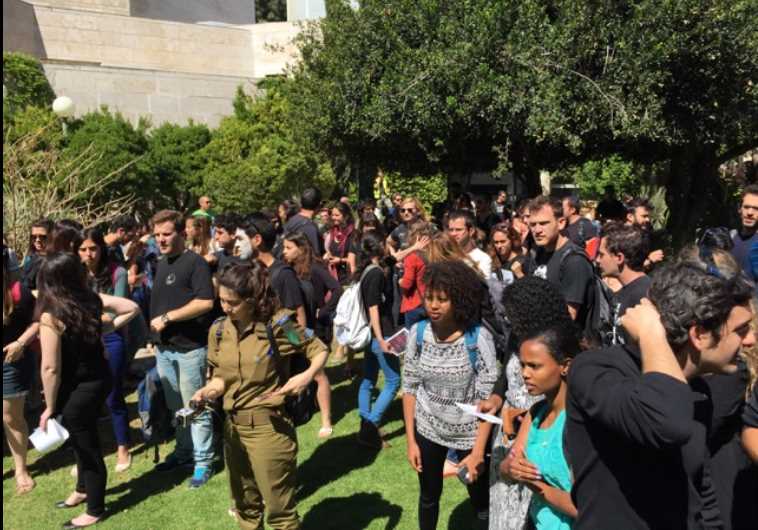Students come out to show solidarity with Ethiopian-Israeli community
A demonstration on the Mount Scopus campus of the Hebrew University of Jerusalem drew approximately 300 students.
 Hebrew University students protest racism and discrimination at Mt. Scopus campus(photo credit: ODED BAHAR)
Hebrew University students protest racism and discrimination at Mt. Scopus campus(photo credit: ODED BAHAR)